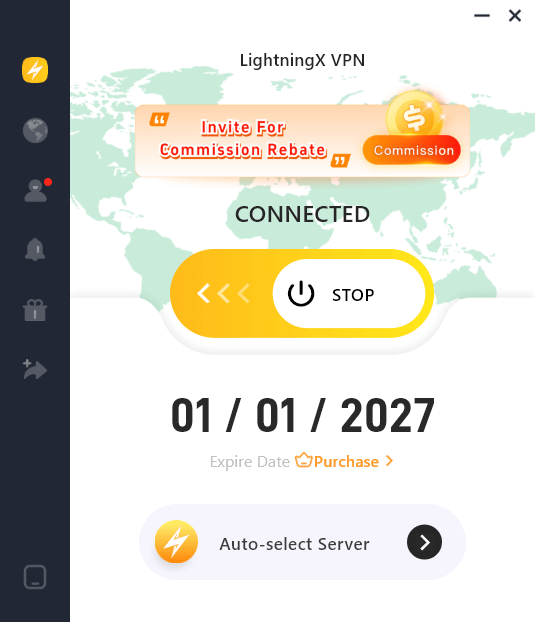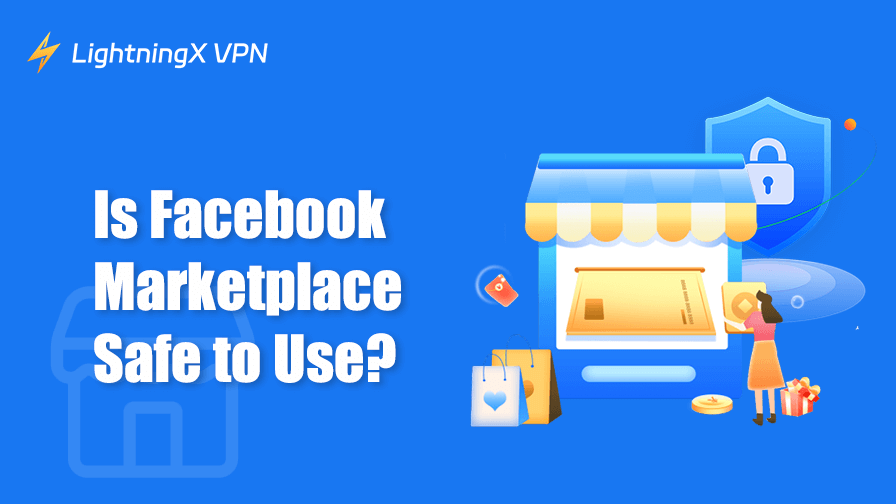Facebook Marketplace has turned into one of the biggest digital flea markets in the world. Items on it sometimes can be really a bargain. At the same time, scams exist, deals fall through, and not every interaction is pleasant. Here comes the question: Is Facebook Marketplace safe? Well, the platform is safe itself. However, there are plenty of scams to be cautious of.
Is Facebook Marketplace Safe?
The answer could be complex at first. On top of that, Facebook Marketplace is fairly safe to use as an official and authorized platform. Why do people still have a second thought? It’s not hard to understand. For example, when you are dealing with strangers online, there’s always a layer of risk.
Unlike big e-commerce platforms such as Amazon, Facebook Marketplace doesn’t act as a middleman for payments. People on Facebook Marketplace usually arrange their transactions in private. That means you’re relying heavily on trust, and in some cases, luck.
Common issues that come up:
- Fake listings with prices that look too good to be true.
- Buyers who never show up to pick up an item.
- Sellers who disappear once money is sent through a cash app.
- People are fishing for your personal information.
None of this means Marketplace is unusable, but it does explain why so many people look up safety tips before jumping in.
Top Facebook Marketplace Scams with Common Examples
You can’t really talk about safety without listing the traps. Here’s a closer look at the most common ones and how they actually happen in real life.
1. Fake Shipping Requests
This is one of the oldest and most frequent scams. A scammer poses as a serious buyer and shows strong interest in your product, say, a camera you listed for $400. They agree on the price quickly, then say they’re located in another state and ask you to ship the item.
Shortly after, you receive an email that appears to come from PayPal or Facebook, saying the payment is “pending” and will be released once you provide a tracking number.
Believing it’s legitimate, many sellers mail out the package. But the “confirmation email” is fake, and no payment ever arrives. The buyer vanishes, leaving you without your item and your money.
This exact trick has been reported in local community groups countless times. One seller in Texas shared how she lost her PlayStation 5 to a buyer who insisted on “PayPal shipping protection”, which doesn’t exist in that form.
2. Phishing Links
Scammers often send links that mimic Facebook’s login page or “official” payment portals. For example, you might receive a message like:
“We’ve detected suspicious activity on your listing. Please verify your account here.”
The link leads to a website that looks identical to Facebook, but when you enter your email and password, they’re sent straight to the scammer. If you’re ever unsure about a link, you can check it first with Is this link safe before clicking. Scammers might soon hijack your real Facebook account and use it to target more victims.
In one widely shared case, a user in California lost access to her entire business page after clicking such a link. The scammer changed her password and began posting fake Marketplace listings under her name.
3. Counterfeit Items
Luxury goods and electronics are common targets. Imagine a “Louis Vuitton” bag listed for $300 (less than half its retail price) or an “Apple Watch Ultra” still sealed for $150.
The photos look convincing because scammers often steal them from real listings or brand websites. When buyers meet up, the product appears real at first glance, but the material or packaging gives it away later. By the time they realize it’s fake, the seller’s account is gone.
One New York buyer shared how he purchased what he thought was an authentic pair of Air Jordan sneakers. They looked real in photos and even had a box. But after comparing serial numbers, he discovered they were high-quality replicas imported from overseas.
4. Social Engineering Scams
Some scammers don’t rely on fake links or products; actually, they rely on you. They build trust over days or weeks, sending friendly messages, complimenting your listings, or even pretending to share personal struggles.
Once they’ve gained your confidence, they may ask for a favor, like covering “temporary shipping costs” or sharing a verification code. If someone asks you to share a code or make a prepayment, stop immediately – the FTC has confirmed these are classic scam tactics.
A classic example is the “Google Voice” scam. The scammer says they need to confirm you’re a real person and sends a six-digit code to your phone. When you read the code back, they use it to create a Google Voice account linked to your number, which can be used for further fraud.
In another case, a woman selling a sofa was told by a “buyer” that they were currently deployed overseas and wanted to arrange pickup through a “moving company.” The buyer sent a fake cashier’s check for more than the sofa’s value and asked her to wire the difference. The check later bounced, and the seller was left paying hundreds from her own pocket.
If you want to better protect yourself from similar tricks beyond Facebook, check out these essential internet safety tips.
5. Gift Card Scams
Gift card scams usually target less experienced sellers or buyers. A scammer might claim they can’t use cash or PayPal and ask you to accept payment through gift cards instead. They’ll say, “Just send me the codes and I’ll process payment.” No legitimate buyer will ever ask for gift card codes as payment. Once you do, the balance is immediately drained.
In 2023, a Facebook user in Florida reported losing $400 after a buyer promised to “reimburse” her with a bonus if she could send Apple gift card codes first. She never heard from him again.
6. Car Scams
Many fake listings on Facebook Marketplace involve vehicles. You’ll see a car priced way below market value – a $10,000 SUV listed for $3,500. The “seller” often claims they’re in the military or relocating for a job and need to sell quickly. They’ll say the car is already with a shipping company and ask you to pay upfront through an “escrow service” that turns out to be fake.
Dozens of buyers across the U.S. have fallen for this setup. One particularly viral story involved a fake 2018 Honda CR-V listing for $2,800. The scammer sent official-looking “invoices” from a made-up shipping company. The buyer wired the money, expecting delivery within three days, but the car never arrived.
Tips for Better Protection
Facebook itself also encourages users to buy and sell responsibly on Facebook Marketplace. Following these official safety tips, along with the ones below, can greatly reduce your risk of scams or misunderstandings.
1. Meet in Person Whenever Possible
The safest way to complete a transaction is face-to-face, in a public place such as a coffee shop, shopping mall, or a local police station parking lot (many offer “Safe Exchange Zones”; you could check about that). In-person deals allow you to inspect the item before paying and reduce the risk of scams that rely on shipping.
2. Communicate Only Through Facebook Messenger
Avoid switching to text messages, email, or third-party apps. Scammers often try to move the conversation off-platform to avoid being reported or tracked. Messenger provides a record of your chat and gives you access to Facebook’s reporting tools if something goes wrong.
3. Be Cautious with Prices That Look Too Good to Be True
If an item’s price is far below market value, there’s a high chance it’s fake, stolen, or part of a scam. Compare listings in your area and always question huge discounts.
4. Protect Your Personal Information
Never share sensitive details like your address, ID number, email password, or bank information. Scammers can use even small bits of data to impersonate you or steal your identity.

Extra tip: Using a trusted VPN such as LightningX VPN can make browsing on Facebook Marketplace more secure. It strengthens your privacy with advanced encryption (including Shadowsocks and VLESS protocols) and full IPv6 support. Combined with a strict no-log policy, it keeps your data untraceable even by the service itself.
Now you can be a member for only $7.99 per month, and also gain a 30-day money-back guarantee!
5. Check the Seller’s (or Buyer’s) Profile Carefully
Look for reviews, ratings, account age, and activity. A brand-new account with no history, few photos, or mismatched information is a red flag. You can also check whether their other listings look suspicious or repetitive.
6. Use Secure and Traceable Payment Methods
Opt for payment options that offer buyer protection – like PayPal Goods & Services or in-person cash payments. Avoid wire transfers, gift cards, or apps like Zelle or Venmo for strangers, since they offer little to no recourse if you’re scammed.
If someone asks you to share a code sent to your phone (for “identity verification” or “payment confirmation”), it’s almost certainly a scam. By using those codes, scammers can instantly take over your accounts and gain full access.
8. Trust Your Instincts
When a buyer pressures you, gives inconsistent answers, or asks for strange forms of payment, trust your instincts and step back. Walk away. There will always be more listings.
9. Enable Two-Factor Authentication (2FA) on Your Accounts
Adding 2FA to your Facebook account or linked email provides an extra layer of security. Even if a scammer gets your password, they won’t be able to log in without the second verification code sent to your phone or authentication app. This greatly reduces the risk of account hijacking.
FAQs – Is Facebook Marketplace Safe
Q1: What if I accidentally share a verification code or my account gets hacked?
If this happens, immediately change your Facebook password and enable two-factor authentication to secure your account. Contact Facebook support to report the issue and monitor any linked payment accounts for unauthorized activity. Taking these steps quickly can prevent further misuse and protect your personal information.
Q2: Can I use gift cards, Zelle, or Venmo for payments?
Using gift cards or instant transfer apps like Zelle and Venmo is highly risky because these payment methods often leave you no recourse if something goes wrong. The safest approach is to use in-person cash transactions or secure online payment methods like PayPal Goods & Services, which provide buyer and seller protection in case of disputes.















